Anxiety - Our Most Common Mental Health Issue
Anxiety Disorder Therapy & Counseling in Boca Raton
Anxiety Disorder, aka “Everyone’s” Problem
Everyone feels stress and anxiety, especially in today’s world. But sometimes, anxious distress can start to take over our lives.
Most people who experience excessive anxiety know it. Often, managing anxiety isn’t about becoming more aware of your worry, fatigue, agitation, or racing mind. It’s about managing how powerless you feel to stop it or keep it from happening. Breakwater Psychotherapy offers a variety of therapy services aimed at helping you understand anxiety, how it affects your mental and physical health, and how you can better manage how you experience anxiety in day-to-day life.
“Anxiety” Can Have Many Meanings
Anxious stress doesn’t always manifest the same way for everyone. Some people are triggered into acute panic by certain situations, but are relatively fine in others. Some experience Obsessive Compulsive Disorder (OCD), trapped in cycles of obsessions and corrective or preventative measures that interfere with life’s other activities and obligations. Others may never feel high levels of acute distress, but can’t seem to ever fully relax enough to enjoy themselves or focus. Still others find themselves trapped in an endless cycle of perfectionism and frustration.
The tricky thing about anxiety is that, at its core, it’s supposed to be helpful. Anxiety makes us alert, ready for anything, and extra-focused on the most important details of a challenging or threatening situation. But what happens when you feel highly vigilant or activated in situations you know to be benign? Or what happens when you don’t have a problem to solve (or have solved the problem) and the fight/flight reaction doesn’t go away?
Most often, we start to avoid situations that cause“excessive” reactions; over time, this can start to make our world feel very small. We start to live our lives trapped in fear and regret, constantly second-guessing ourselves or feeling compelled to re-do things until they are perfect. Unchecked, this can lead to other problems like depression.
Avoiding, over-preparing, or excessively checking the situations we associate with anxious distress can be very effective in the short-term. But over the long haul, many of these strategies can start to perpetuate or worsen anxiety rather than eliminate it.
You have a right to be nervous. However, we can help you come to greater peace with anxiety-provoking situations in life. We are trained in empirically valid methods of helping you understand, confront, and resolve problematic coping mechanisms for anxious stress so that you can more effectively manage life’s challenges.
Signs of Excessive Anxiety (Anxiety Disorder)
Our therapists will never consider any concern you have about your anxiety “too minor” or “too much” to benefit from therapy. But, if you find yourself experiencing any of the following anxiety symptoms, we may be able to help:
Lost or reduced ability to stay focused on tasks you are trying to complete
Feeling more agitated, irritable, or on edge
Difficulty sleeping, especially due to feeling restless or like your brain won’t “shut off” at night
Preoccupation with certain things, even when they aren’t present or relevant to what you’re doing
Checking and rechecking to make sure you’re doing things correctly
Feeling on edge or worried, even when you know there’s nothing to worry about at the moment
Relying on “checking out” to feel a sense of relief because “nothing ever seems solved”
Practical Steps for Anxiety Reduction
What is good for anxiety? It depends… each person experiences anxiety differently. However, below are a few general recommendations that may help to alleviate anxious feelings:
1. Practice single-tasking.
Try to find or make time to do just one thing at a time, something you are willing to try and focus on for several minutes at a time, to regain your concentration and practice letting go of distracting thoughts.
2. Get up and move.
Especially when you enjoy the movement, physical activity has shown to reduce and mitigate many of the effects anxiety has on your body.
3. Talk to people you trust.
Sometimes, our brain will get “stuck” on something and knowing we are not alone in feeling this way can help the feeling become more manageable.
4. Focus on accomplishing things you can control, a little bit each day.
Incremental change is hard, but over time you can see bigger and bigger returns on your willingness to “chunk out” large and stressful projects.
5. Find a good therapist.
Anxiety is a normal and natural emotion, but there is a lot of mixed messaging, bad advice, and unrealistic expectations about how to handle it. Talking to a trained professional can help you understand these anxious feelings on your own terms and, more importantly, figure out how you can best address and manage anxiety in your own life.
We Can Help You with Anxiety
You do not have to keep figuring this out on your own. We have helped many people better manage anxiety and related mental health issues. We know the emotional, intellectual, and social dynamics surrounding anxiety, and we have ways to help.
If you feel curious or are ready to talk about your anxiety, panic, procrastination, or OCD, reach out to our intake coordinator today for a free consultation about our services.




